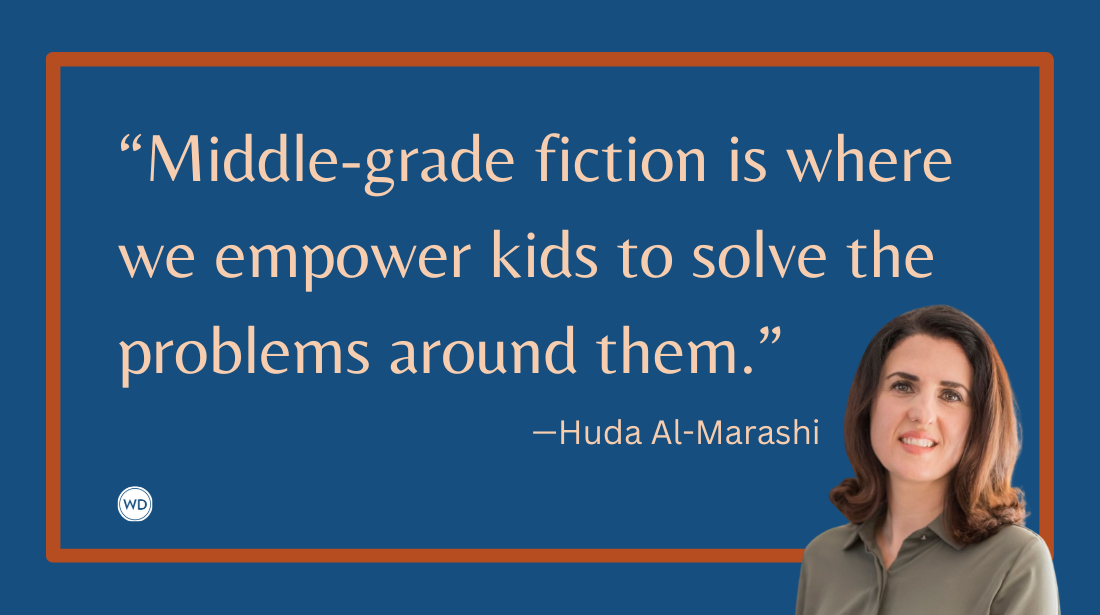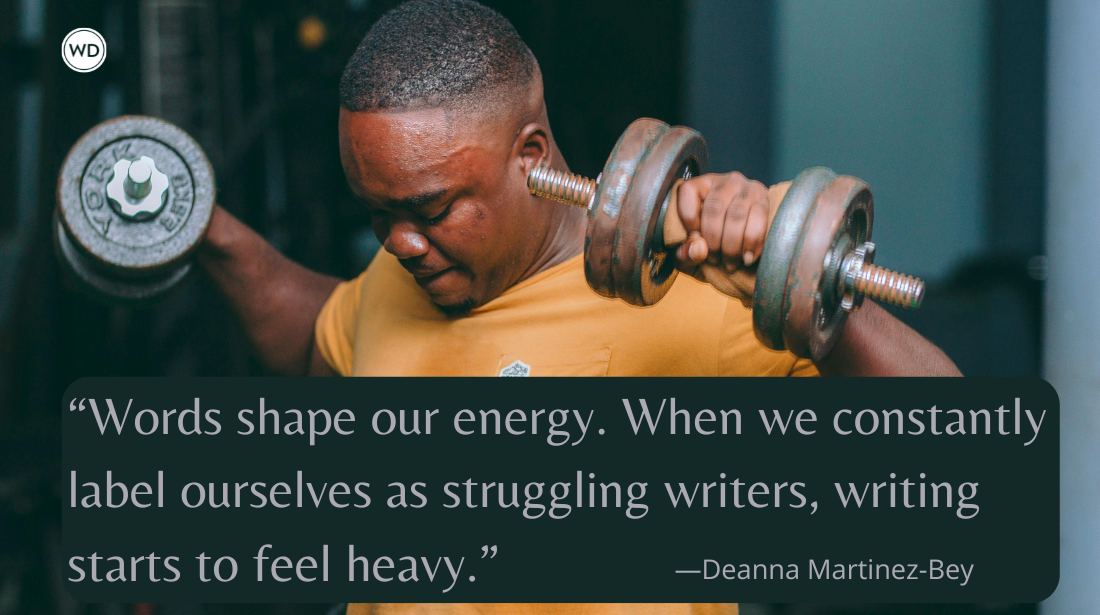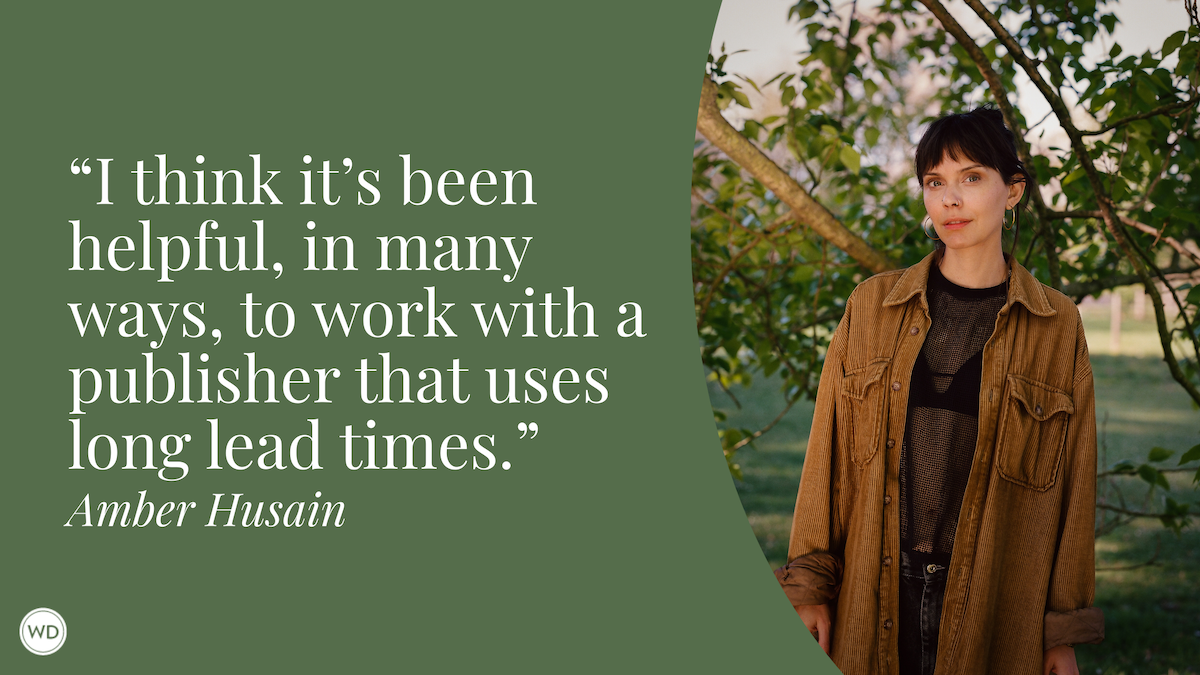Christopher Ransom: This Was a Book I Had To Write
In this interview, author Christopher Ransom discusses the deeply personal experience of writing his new sports comedy-drama, The Turn.
Christopher Ransom is a novelist and copywriter who works in big tech. He is the internationally bestselling author of seven novels, including The Birthing House, The People Next Door, and The Fading. During the four years he spent working on The Turn, he played more than 400 rounds of golf, lowered his handicap by fifteen strokes, made two aces in the span of 33 days, lost 20 pounds, and ended his 30-year run with alcohol. He lives in Longmont, Colorado. His home course is Twin Peaks. Follow him on Instagram and Facebook.
In this interview, Christopher discusses the deeply personal experience of writing his new sports comedy-drama, The Turn, his hope for readers, and more.
Name: Christopher Ransom
Literary agent: Scott Miller, Trident Media
Book title: The Turn
Publisher: Blackstone Publishing
Release date: May 27, 2025
Genre/category: Fiction, comedy, romantic comedy, sports, mental health/psychology, golf, family drama, substance abuse/addiction
Previous titles: The Birthing House; The Haunting of James Hastings; The People Next Door; The Fading; The Orphan; Beneath the Lake
Elevator pitch: Reeling from his divorce and the loss of his father, 45-year-old Casey Sweet is forced to take a health sabbatical from work and soon becomes obsessed with golf. When he suspects a 22-year-old golf prodigy at his local course might be a son he never knew, he attempts to forge a relationship with the young man and rekindle a lost love with the boy’s mother, forcing him to confront his drinking problem and make meaningful changes in his life.
What prompted you to write this book?
After being a full-time author for about eight years, I lost interest in writing more horror novels. I went through some heavy life changes, and after spending a couple of years working back in the cubicle farm of corporate marketing, I developed some health problems, including anxiety and panic attacks. My drinking habits escalated, and I was in bad shape. Around this time, I began playing golf again and became completely obsessed with the game. I started playing 60-100 rounds per year, and the mental and physical health benefits were immediately apparent. I felt there was a golf novel to be written about regular guys like me, recreational golfers who had latched onto golf almost as a life preserver. I thought that would make for a great backdrop for a comedy around these other midlife misadventures like divorce, career change, loss of a parent, confronting our own health challenges, and so on.
How long did it take to go from idea to publication? And did the idea change during the process?
About five or six years in total. But I spent a year or two trying to make a very different kind of golf-themed novel work. Originally it was going to be more of a suspense story, still somewhat humorous, but much darker, and more of a high-concept thing. After about 100 pages, I realized it had no heart and wasn’t really about anything other than men behaving badly. I decided I just needed to write about what I was experiencing and the regular people I was seeing at my local municipal courses. I wanted to tell a story that celebrated the good things that golf offers—outdoor time (time away from all the damn screens), physical activity, a mental break from our problems, social time, the bonds we form around the game, new goals, and so on.
I landed on the title (“the turn” is a term for the midway point in a round of golf) and realized this was the perfect thematic fit for the midlife crisis my protagonist, Casey, was going through, as well as what I was dealing with in my own life. Then I reached a critical crossroads where I knew that, to get what he wanted—a better life, a relationship with his long-lost son, and a romantic relationship with the boy’s mother—Casey was going to have to stop drinking. And to write that authentically, not to mention finally finish the damn book, I too would have to stop drinking. Once I did that, I wrote the entire second half of the novel in four months. It all became this beautiful process of going deeper into golf, getting healthier, and making the story much better than I ever imagined.
Were there any surprises or learning moments in the publishing process for this title?
Honestly, this was a book I had to write, never mind the commercial prospects. I have an incredible agent, but I was still a little surprised he was able to place the book with a real publisher at all. While golf as a sport has never been more popular, most golf books are nonfiction. Golf novels are very rare, so I am really grateful to my editor, Rick Bleiweiss at Blackstone, for taking a chance on The Turn. It’s a comedy-drama that deals with loss, addiction, modern relationships, career crisis, family matters. It’s pretty candid in terms of men and our emotional and sexual dysfunction. It also a really optimistic story and features an uplifting sports drama. Our belief is that there’s a little something here for many types of readers, whether they love golf or couldn’t care less about it.
But the market gap is funny. Long before I finished and sold The Turn, one of my literary role models was Sideways, both the film and its source novel by Rex Pickett. Was the market crying out for a wine novel? No. But Sideways was a huge hit and literally changed the wine industry because it deals with real-life problems we can relate to. When Sideways is funny, it’s gut-busting funny. When it’s serious, it hits deep. That’s the tone I hoped to strike with The Turn. So, obviously, when Mr. Pickett was kind enough to give us a blurb, that was a special validation.
Were there any surprises in the writing process for this book?
Other than the pretty big changes the book helped me make in my own life, I did not plan or ever expect to give The Turn a real underdog sports-drama story line. While it’s not the primary plot line, there is a thread here that I liken to some of the sports movies we all love. Hoosiers, Vision Quest, Breaking Away…these gems from the 80s featuring a cast of regular people (often flawed or overlooked) rallying around a team or individual goal. I never wanted to force something like that into the book, but as Casey and Josh (his possible son) get closer, Josh’s journey clarifies—he needs to grow up, move out of his mother’s house, and follow his dream of becoming a professional golfer. I didn’t need him to make it to the PGA, that’s not the point. But he needed to take a real step and leave the nest. I found a way to do that in this amateur golfer world, and it was the perfect way to gather my ragtag crew of characters around the climax. That ended up being unbelievably fun to write and I think helped me find the perfect ending for the story.
What do you hope readers will get out of your book?
Well, it’s comedy fiction, not a message novel, so I just hope it gives people some real laughs and maybe touches them in some way. If it inspires some people to pick up a golf club, great. On a deeper level, I think the personal growth and change piece is worth considering. Life is hard, we all go through rough patches. Golf (along with the work I did with my doctors and therapists) was an important piece of my healing and growth from age 45-50, but it could have been travel, pickleball, collecting maple syrup in the woods, knitting, whatever. I think we benefit from switching things up, trying new routines, getting out there with new people, getting away from social media and our phones, and actually living life.
If you could share one piece of advice with other writers, what would it be?
We always talk about inspiration. For me that means energy. Where does the energy to write come from? I know before I begin a new novel, this is where I’m going to live for the next few years, so I better be sure I can sustain enthusiasm for it. I think there is great energy to be mined from whatever aspects of the human condition and subjects we are curious and passionate about. Never mind what’s popular or what you think will sell. If you’re not writing from a place of excitement or deep interest, you won’t have a story worth reading. So, if that’s a detective story set in the world of fly fishing or a romance built around graveyard tourism, go for it. Show the world what is beautiful and strange and interesting about this stuff you’re into and tell the story in the way only you can tell it.








